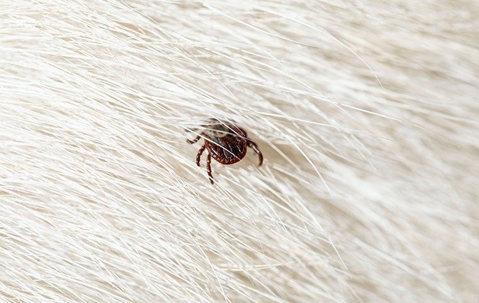Ticks are a major problem for many Georgia homeowners. These little bugs are actually a type of arachnid. However, unlike other arachnids in this area, ticks don't eat other insects. Instead, they feed on the blood of humans and animals, which could cause a lot of problems for you and your pets.
If you are tired of dealing with ticks around your property, Procare Pest Services can help you out. We are a locally owned and operated Lawrenceville pest control company. We understand this area and know how to deal with all the common types of ticks found here. Keep reading to learn how to keep these dangerous and annoying creatures away from your property.
The Life Cycle Of Ticks: A Comprehensive Overview
Every species of tick in Lawrenceville will go through four stages of life. While the time it takes to go through these stages will vary by species, the four stages are all the same and include:
- Egg: A female tick can lay over 7,000 eggs at one time. The eggs are usually laid in a cluster together and are black or dark reddish-brown.
- Larva: Once an egg hatches, a larva emerges and immediately looks for a blood meal. Larvae are tiny ticks that only have six legs instead of eight.
- Nymph: After the larva has filled with blood, it will fall off its host and transition to a nymph. During this stage, the nymph will grow two more legs and look more like a small adult tick.
- Adult: After the nymph has had its fill of blood, it will fall off of its host and begin to develop into the adult stage. Before it reaches full maturity, it must find a new host and drink more blood so that its body can grow and mature.
Every tick needs a blood host to survive and move on to the next stage of life. Some ticks, like the brown dog tick, usually use the same host throughout all stages. However, some species can take years to go from larva to adult. These ticks will find a new host often and sometimes die if they cannot find a new host quickly enough.
The Dangers Of Fleas And Ticks: Health Risks And Concerns
When a tick bites an animal, it will become infected with whatever disease or virus that the animal has. If the tick bites you, it will inject a small amount of saliva into your body, which can transmit harmful diseases and viruses to you. Some of the most common illnesses people catch from a tick bite include Rocky Mountain spotted fever, ehrlichiosis, Bourbon virus, and Lyme disease.
Your pets are also able to catch these deadly diseases from ticks. Usually, where there are ticks, you will also find fleas. Like ticks, fleas also only eat blood from humans and animals. If a flea gets on your pet, it could cause your pet to become anemic. You and your pet could also become infected with tapeworms if either of you accidentally swallowed the flea.
Tick Prevention Tips: Expert Advice For a Tick-Free Life
Ticks like yards that have plenty of shade. In our experience, we commonly see ticks in yards that have overgrown grass and vegetation. If you want to keep ticks out of your yard, remove clutter and debris from your yard. Also, make sure to cut the grass short in your yard all summer long.
Expert Tick Control Services: Keeping Your Property Tick-Free
If you are tired of dealing with ticks around your Lawrenceville yard, we can help you. At Procare Pest Services, we know proper home pest control in Lawrenceville. We also use advanced tick control methods to ensure they don't return. Contact us today!

